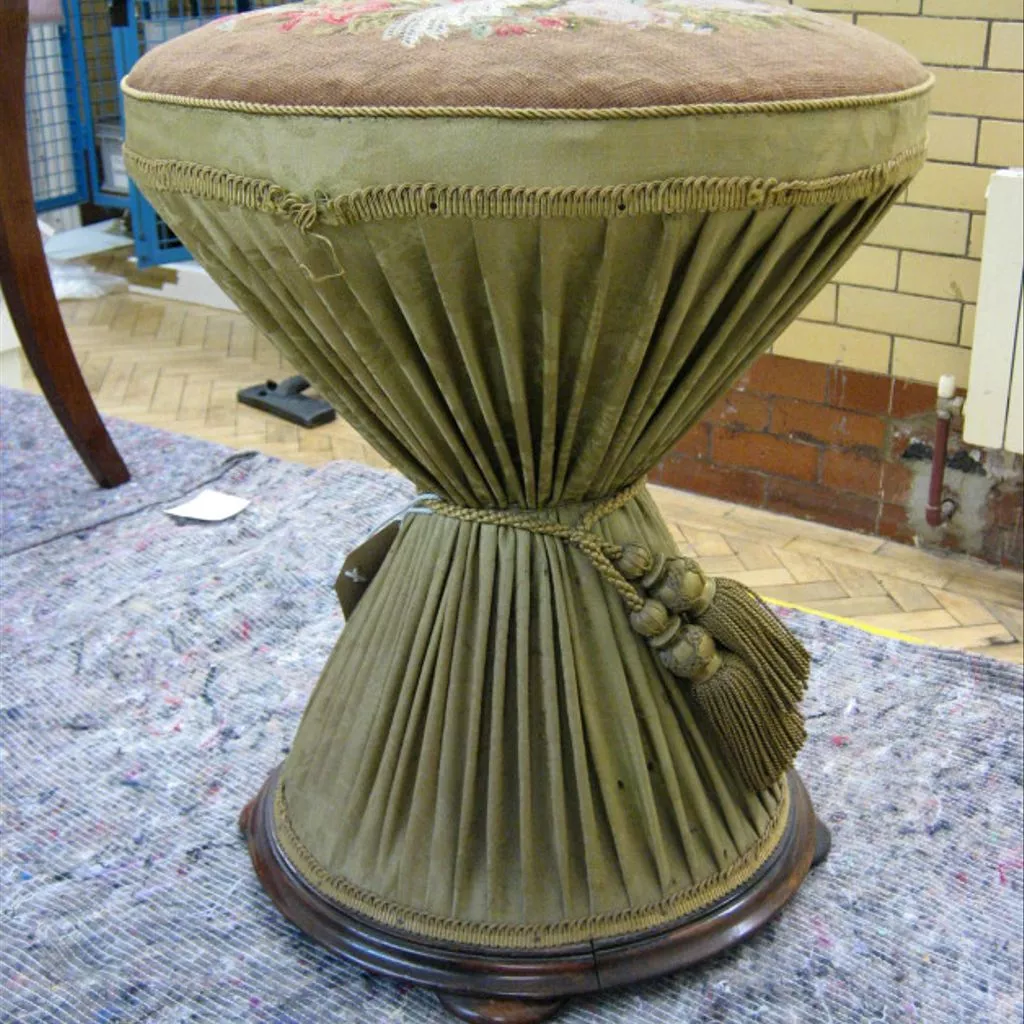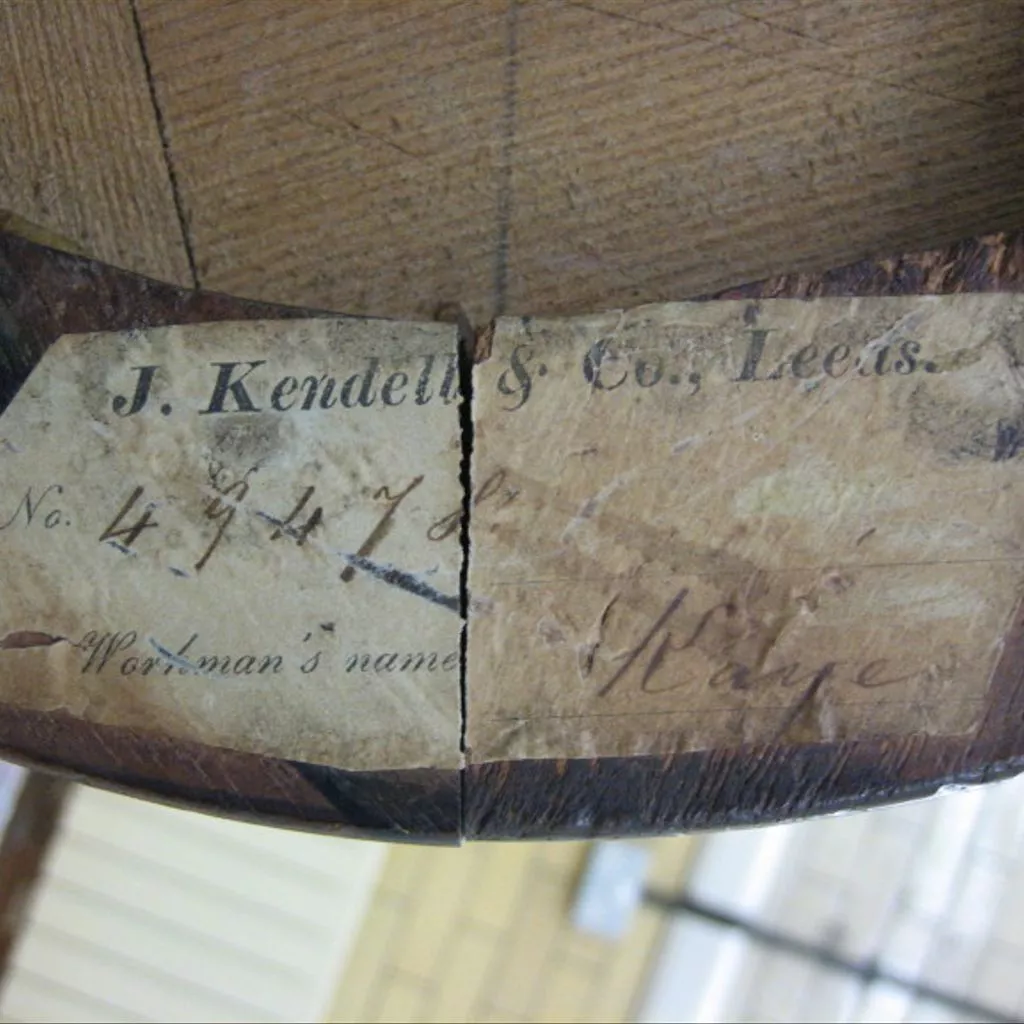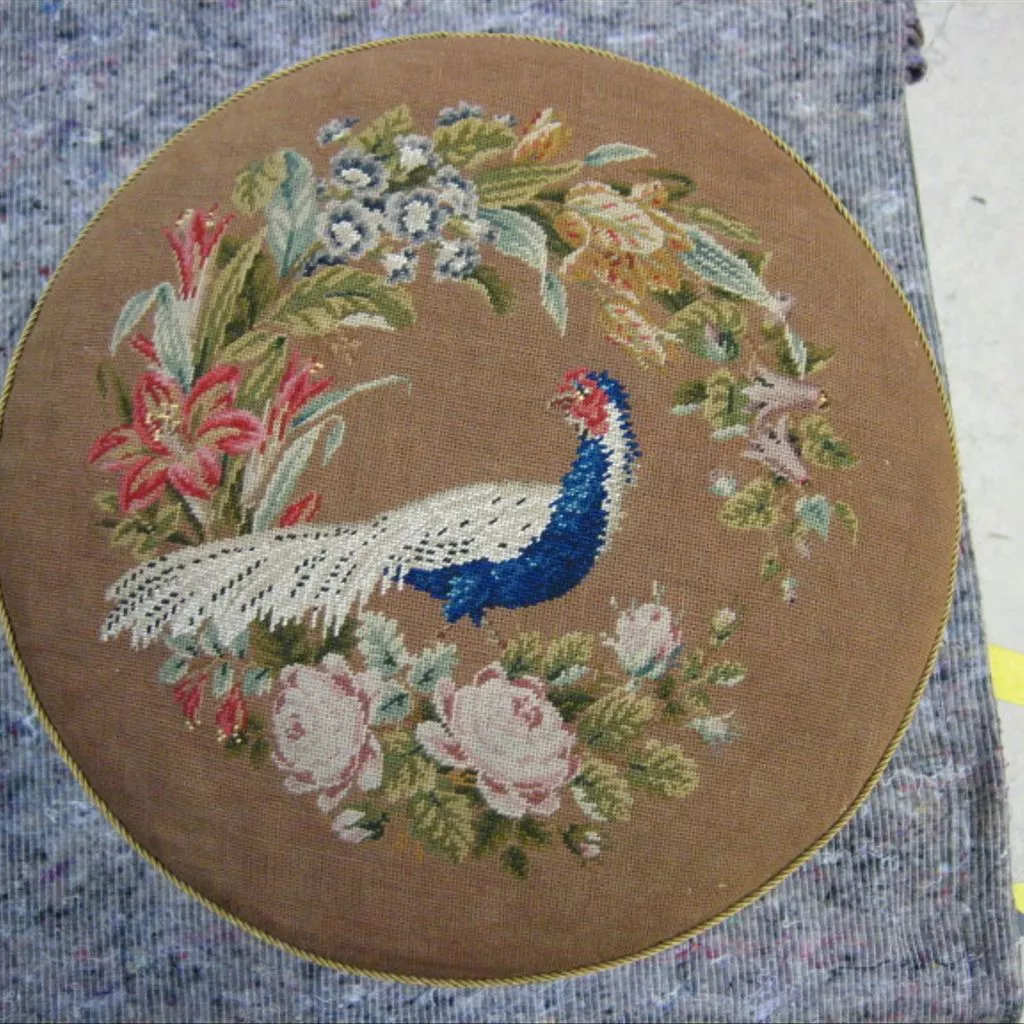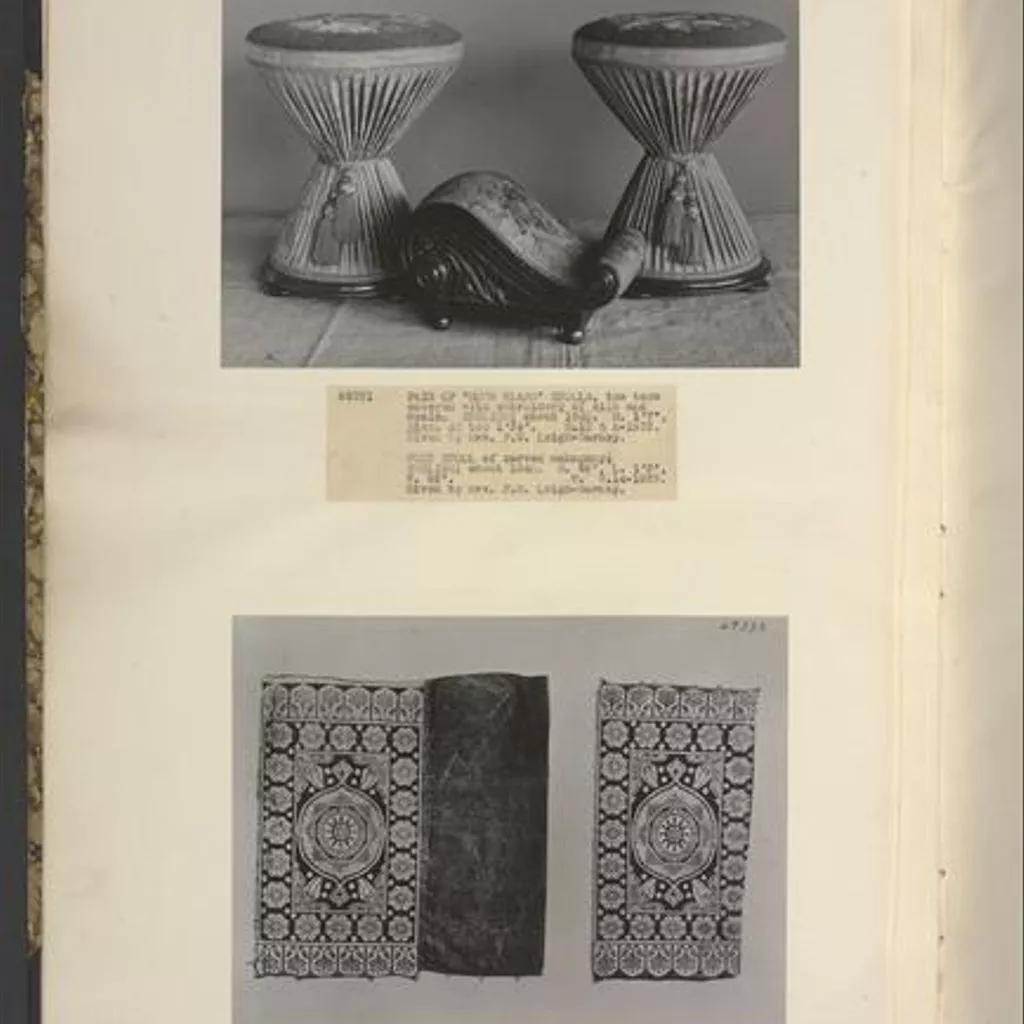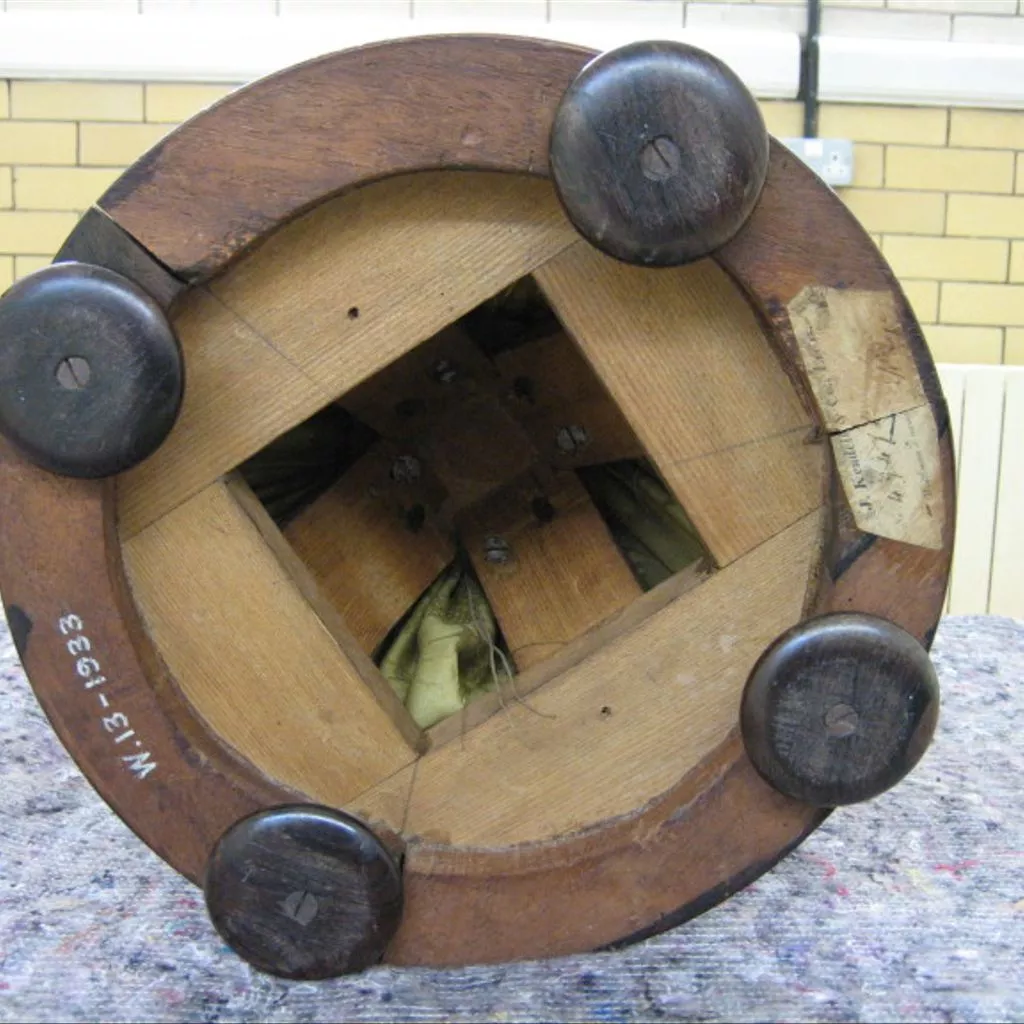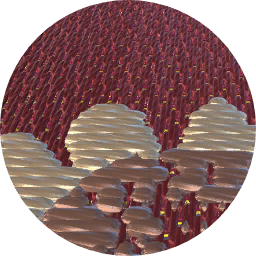Description
Stools in the form of an hour-glass became fashionable in the early 1830s and designs were published in pattern books, intended for use by furniture makers. This stool, and its pair, W.13A-1933, were made by John Kendell & Co., a firm based in Leeds, who introduced a system of labelling their furniture in the 1830s. Their printed paper label is on the underside of the stool and is marked in ink with the name of the workman, Kaye, who made the stools, and a stock number. Unfortunately without the firm's records, which do not apparently survive, it is not possible to identify the original client. The sides of the stool have been re-covered in modern green damask with cords and tassels.
The stool is shaped like an hour glass, with a circular top and base. The top is covered with a canvaswork embroidery, in wool and silk, of a pheasant with a floral garland, and trimmed with yellow cord around the edge. The sides of the stool are covered in modern green damask, pleated to fit the shape, with yellow cord and two tassels round the narrowest section in the middle, and braid trimming around the top and bottom of the damask. The base is mahogany, circular, and fitted with four bun feet. Attached to the inner face of this base is the inner pine frame, circular with a square central opening. Four square section struts, attached to this inner frame at the bottom, are screwed together at the top to form a shaped junction at the narrowest part of the hour glass shape. Below the damask it is possible to feel that there are four more struts which support the circular frame for the top.
hour glass form with circular top and base on four bun feet; the top covered with a canvaswork embroidered panel with a design of a pheasant and flowers, the base covered with modern green damask trimmed with cord, braid and two tassels; made by John Kendell & Co., Leeds, British c. 1840
Hour-glass stools became fashionable in the 1830s in England and designs were illustrated in furniture pattern books, to give furniture makers ideas for new designs. J.C. Loudon recommended hour-glass stools in his Encyclopaedia of Cottage, Farm, and Villa Architecture, 1833, fig. 2328, suggesting that they could be made of straw for rustic summer houses, as well as part of the furnishing of a drawing room. A design, very similar to this pair of stools, and also with bun feet, was illustrated by Thomas King in The Cabinet Maker's Sketch Book, of Plain and Useful Designs. Vol I Consisting of Chair and Sofa Work, 1835, page 20, 'An hour-glass seat'. King also illustrated two other versions of different design in Specimens of furniture in the Elizabethan and Louis Quatorze styles. Adapted for modern imitation, c. 1839.








